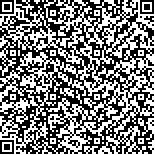| Quote
: |
陈虎林,刘杰,吴德卫,韦瑞玲,董娟,余跃.同步化经皮穴位电刺激联合自适应生物反馈治疗出口梗阻型便秘的疗效及其对血清VIP、NO的影响[J].湖南中医药大学学报英文版,2021,41(5):754-759.[Click to copy
] |
|
| |
|
|
| This paper
:Browser 3520times Download 1367times |
| 同步化经皮穴位电刺激联合自适应生物反馈治疗出口梗阻型便秘的疗效及其对血清VIP、NO的影响 |
| 陈虎林,刘杰,吴德卫,韦瑞玲,董娟,余跃 |
| (合肥市第八人民医院肛肠科, 安徽 巢湖 238000;中国科学技术大学附属第一医院消化内科, 安徽 合肥 230001) |
| 摘要: |
| 目的 探讨经皮穴位电刺激(TEAS)联合自适应生物反馈(ABF)治疗出口梗阻型便秘(OOC)的疗效及对血管活性肠肽(VIP)、一氧化氮(NO)含量影响。方法 将OOC患者(共150例)随机均等分为A组(采用足三里、三阴交穴TEAS疗法联合ABF治疗)、B组(采用ABF治疗)、C组(采用复方聚乙二醇电解质散治疗),每组50例。于治疗前及治疗后6周时,对3组患者的便秘症状评分、肛肠动力学及血清VIP、NO含量进行比较分析。结果 治疗后,3组患者便秘症状评分均较治疗前降低,且A组评分低于B组、C组,B组评分低于C组,差异均有统计学意义(P<0.05)。治疗后,3组患者直肠肛门压力梯度、直肠初始感觉阈值及排便感觉阈值均治疗前有明显变化,差异均有统计学意义(P<0.05);A组直肠肛门压力梯度明显高于B组、C组,且B组高于C组,差异均有统计学意义(P<0.05);A组直肠初始感觉阈值、直肠排便感阈值明显低于B组、C组,且B组低于C组,差异均有统计学意义(P<0.05)。治疗后,3组患者血清中VIP、NO含量均较治疗前下降,且A组低于B、C两组,B组低于C组,差异均有统计学意义(P<0.05)。A组总好转率高于B、C两组(P<0.05),B组总好转率高于C组(P<0.05)。结论 TEAS联合ABF治疗OOC患者,可降低血清中VIP及NO分泌,增加直肠肛门压力梯度,提高直肠容量敏感性,促进便秘症状改善,从而提高临床疗效。 |
| 关键词: 出口梗阻型便秘 经皮穴位电刺激 自适应生物反馈 肛肠动力 血管活性肠肽 一氧化氮 |
| DOI:10.3969/j.issn.1674-070X.2021.05.019 |
| Received:December 31, 2020 |
| 基金项目:安徽省对外科技合作计划项目(1604b0602021)。 |
|
| Effect of Synchronized Transcutaneous Electrical Acupoint Stimulation Combined with Aadaptive Biofeedback in the Treatment of Outlet Obstruction Constipation and Its Influence on Serum VIP and NO |
| CHEN Hulin,LIU Jie,WU Dewei,WEI Ruiling,DONG Juan,YU Yue |
| (Department of Anorectal, The Eighth People's Hospital of Hefei, Chaohu, Anhui 238000, China;Department of Gastroenterology, The First Affiliated Hospital of University of Science and Technology of China, Hefei, Anhui 230001, China) |
| Abstract: |
| Objective To investigate the effect of transcutaneous electrical acupoint stimulation (TEAS) combined with adaptive biofeedback (ABF) in the treatment of outlet obstructive constipation (OOC) and its influence on the content of vasoactive intestinal peptide (VIP) and nitric oxide (NO). Methods 150 patients with OOC were randomly divided into group A[treated with TEAS at Zusanli (ST36) and Sanyinjiao (SP6) combined with ABF], group B (treated with ABF) and group C (treated with compound polyethylene glycol electrolyte powder), with 50 cases in each group. The constipation symptom score, anorectal dynamics, serum VIP and NO levels of the three groups were compared and analyzed before treatment and 6 weeks after treatment. Results After treatment, the constipation symptom scores of the three groups were lower than before treatment, and the scores of group A were lower than those of group B and group C, and the scores of group B were lower than those of group C, the differences were statistically significant (P<0.05). After treatment, the anorectal pressure gradient, rectal initial sensory threshold and defecation sensory threshold of the three groups were significantly changed compared with those before treatment, the differences were statistically significant (P<0.05); the anorectal pressure gradient of group A was significantly higher than that of group B and group C, and that of group B was higher than that of group C, the differences were statistically significant (P<0.05); the rectal initial sensation threshold and rectal defecation sensation threshold of group A were significantly lower than those of group B and group C, and group B was lower than group C, the differences were statistically significant (P<0.05). After treatment, the levels of VIP and NO in the three groups were lower than before treatment, and the levels in group A were lower than those in group B and C, and those in group B were lower than those in group C, the differences were statistically significant (P<0.05). The total improvement rate of group A was higher than that of group B and C (P<0.05), and the total improvement rate of group B was higher than that of group C (P<0.05). Conclusion TEAS combined with ABF in the treatment of OOC patients can reduce the secretion of VIP and NO in serum, increase the rectal anal pressure gradient, improve the rectal volume sensitivity, promote the improvement of constipation symptoms, and improve the clinical efficacy. |
| Key words: outlet obstructive constipation transcutaneous electrical acupoint stimulation adaptive biofeedback anorectal motility vasoactive intestinal peptide nitric oxide |
|

二维码(扫一下试试看!) |
|
|
|
|


